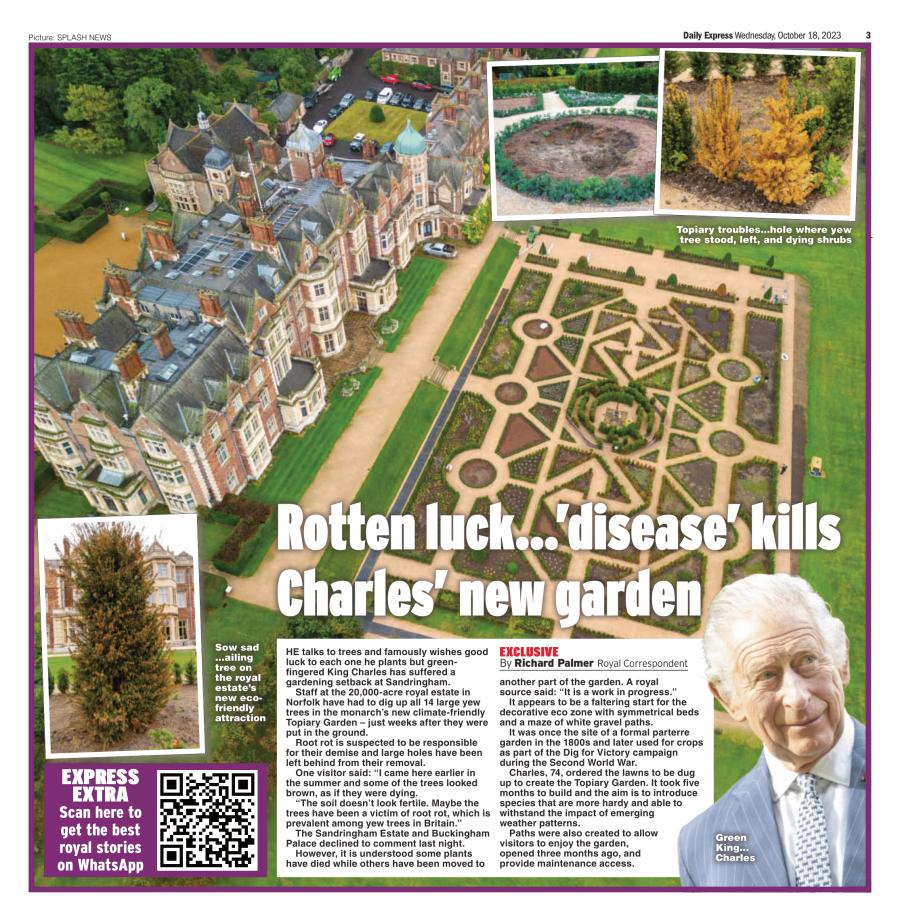There are big holes in the ground where the yew trees once stood in the decorative garden, which is laid out with symmetrical beds and a maze of white gravel paths. The garden was only opened to the public three months ago in July but now has big gaps in the planting. New yew trees are expected to be planted in the next few weeks.
One visitor said: “I came here earlier in the summer and some of the trees looked brown and as if they were dying, now they have disappeared completely. The soil doesn’t look very fertile and maybe the trees have been a victim of root rot, which is prevalent among Yew trees in Britain.”
The once immaculate lawn on the west side of Sandringham House was dug up to create the garden, which took five months to construct, and the topsoil and turf ameliorated and used back in the new beds. In recent years, with changing weather patterns the current expanse of lawn had been affected by warm weather and excessive rainfall. The garden was said to include new species that are more robust, hardy and better able to withstand the impact of emerging weather patterns.
The new beds will be filled next year with herbaceous perennial plants and bulbs including Veronicastrum (veronica), Delphinium, Phlox, Echinacea and lavender. The central area will also feature several yellow and pink rose varieties such as ‘Gabriel Oak’, 'Skylark’ and ‘Charles Darwin’. Sandringham gardeners aim to combine specialist horticultural practices and techniques to ensure the topiary is maintained with plentiful visual seasonal colour from the flowers. In addition, the new garden will improve biodiversity and create a rich source for pollinators and the provision of new habitats.
Phytophthora root rot is a common but serious disease of yews and occurs in overly damp soils. The fungus-like organisms cause the fine feeder roots to rot and turn black, leading to reduced water uptake to the plant. The Sandringham Estate declined to comment.
Our Story Appeared In


